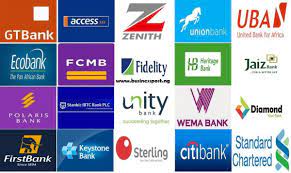
Banks Active Accounts Hit 331.6M in One Year
Nigeria’s banking sector saw a remarkable expansion in 2024, with active accounts surging to 331.6 million by December, reflecting an increase of 122.3 million accounts from 209.3 million in January 2024.
In January, 2024, Nigeria recorded 209.3 million active accounts. The figure grew to 213.0 million in February, adding 3.7 million new accounts. March saw a sharper increase to 219.6 million, reflecting a monthly gain of 6.6 million accounts. The upward trend continued with 221.7 million in April, 2.1 million increase and 223.1 million in May, 1.4 million increase. June recorded a further rise to 225.5 million, adding 2.4 million new accounts.
The second half of the year saw a stronger growth trajectory. July saw active accounts increase to 231.1 million, reflecting a 5.6 million monthly rise. August followed with a marginal increase to 233.2 million, 2.1 million new accounts.
However, in September, there was a sharp spike, with active accounts reaching 291.6 million, adding 58.4 million accounts in one month. October continued the momentum, reaching 297.5 million (5.9 million increase), followed by 302.8 million in November a 5.3 million increase. Finally, December closed the year at 331.6 million, marking the highest monthly increase of 28.8 million new accounts.
Despite the rise in active accounts, dormant accounts increased from 21.7 million in January to 25.4 million in December. The steady growth of inactive accounts suggests that while financial inclusion is expanding, a significant number of account holders remain disengaged.
Despite the rapid expansion in e-payments and PoS transactions, Bank Verification Number (BVN) registrations grew at a slower pace. This trend highlights the divergence between financial access and formal financial inclusion.
BVN enrollment stood at 64.92 million in January 2025, but ended the year at 63.47 million, reflecting a net growth of 3.36 million in one year.
The relatively slow BVN growth suggests that a large portion of Nigeria’s expanding financial activities is happening outside the formal banking system, reinforcing the need for stronger policies to integrate more individuals into regulated financial frameworks.
